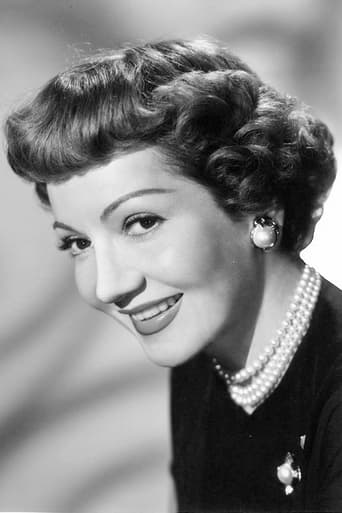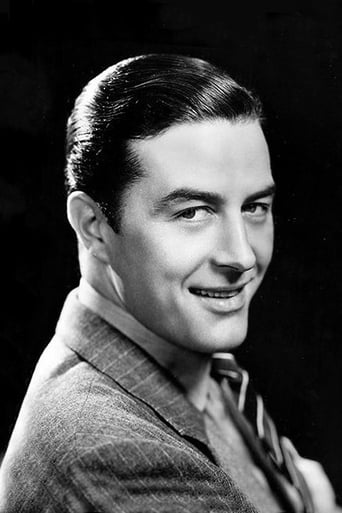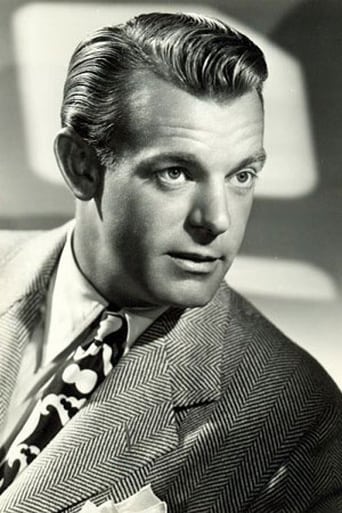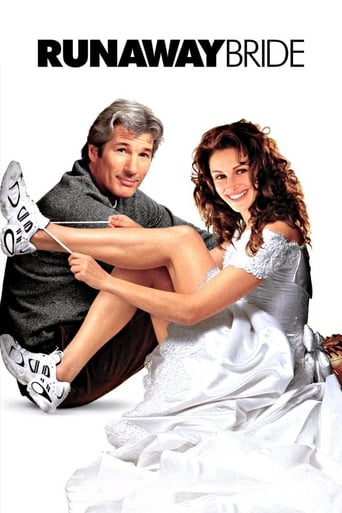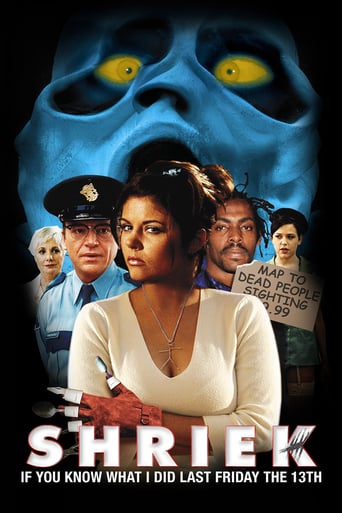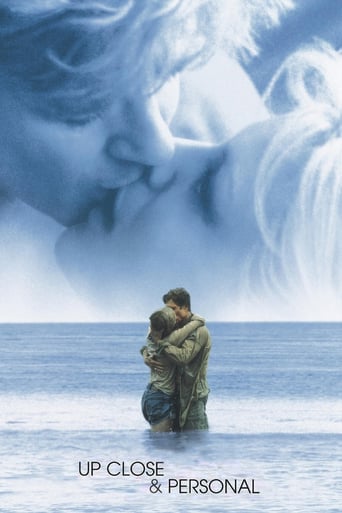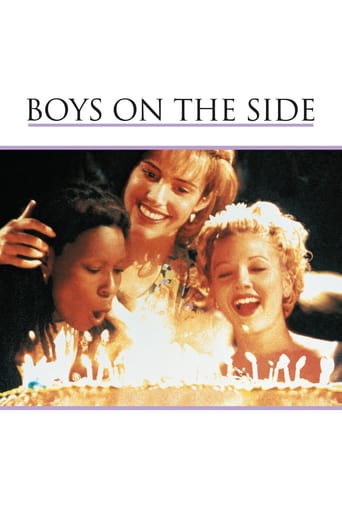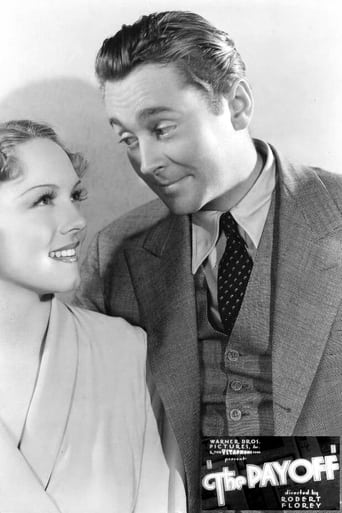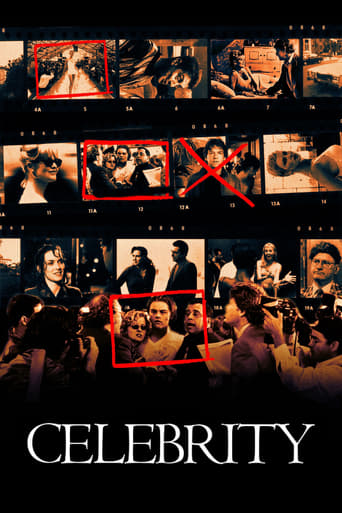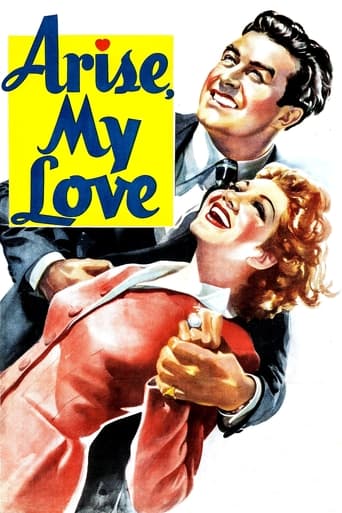
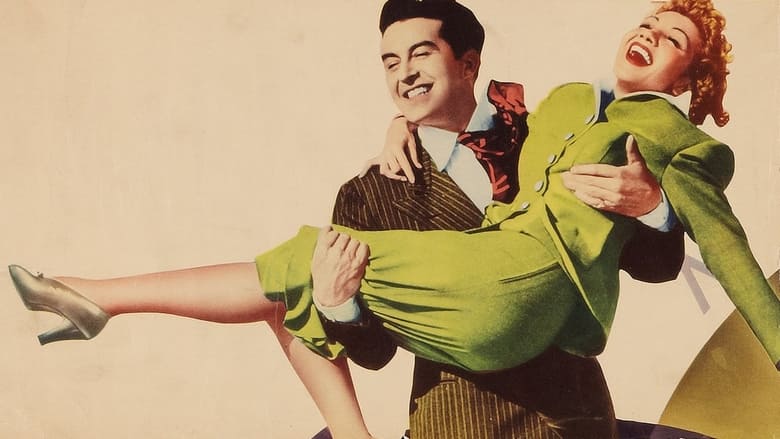
Arise, My Love (1940)
A dashing pilot and a vivacious reporter have romantic and dramatic adventures in Europe as World War II begins.
Watch Trailer
Cast


Similar titles
Reviews
Touches You
Although it has its amusing moments, in eneral the plot does not convince.
It's easily one of the freshest, sharpest and most enjoyable films of this year.
Exactly the movie you think it is, but not the movie you want it to be.
As a fan of Colbert as I was looking forward to watching what she described as "her favourite film"!.Though it starts well enough ,the writing ,plot and characters don't fully convince.Though in real life Colbert and Milland were very attracted to each other ,it doesn't feel that way in the film. As someone else has commented there is too much talking .Sometimes a surreptitious glance or a nervous laugh can express a depth of love that all the "I love yous "in the world fail to match. Colbert obviously remembered this film with great affection,possibly because of her dalliance with Milland and because of its propaganda use in the war effort-the Germans had invaded her country of birth . Colbert does well within the confines of the script ,but for one scene (when she rings her boss after the sinking of her boat)it is routine for this accomplished actress. In fairness the writers predictions in the final scenes about the Third Reich failing were spot on.
Ray Milland (Tom) is awaiting execution in Franco's Spain when he gets a last minute reprieve courtesy of his wife's intervention. Only his wife, Claudette Colbert (Augusta) isn't really his wife. She's a reporter looking for a story. They make a run for it when their deception is discovered and then the film plays out as a romance set against the beginning of World War 2.Basically, nothing happens in this film. It's very talky. The actors are just given too many words to rattle off to each other without the film ever going anywhere. After about an hour, when nothing had happened, I paused the film and went to have a poo. This gave me the very welcomed experience of actually being entertained as I got to read another chapter of my book – "And I Don't Want To Live This Life" by Deborah Spungen, mother of Nancy Spungen (as of Sid and Nancy fame/legend). When I resumed the film, it just continued in a very boring manner with not a lot happening and lots of words.Question – where are the Hebrides? The answer according to this film is off the coast of Ireland. Yeah, just like Spain is off the coast of Norway. At the beginning of the film, the best part, the soldier being executed marches in time with his executors to his fate. No way. Why is he marching in time to the tune of his enemy killers? While the 2 leads, Colbert and Milland, do work well together and are very likable stars, they unfortunately just get bogged down with sappy shenanigans. The story is just unbelievable tosh. I can't recommend it because the film is boring.
Mitchell Leisen was one of the few directors who could introduce tragedy into comedy and vice versa .The first part is absolutely dazzling.Incredible though it may seem ,it's full of unexpected twists,of fine lines ("it's my first execution" says the Padre /It's mine too" says the prisoner).The chemistry between Claudette Colbert and Ray Milland is perfect and their husband-and-wife act compares favorably with that of the actress as a "baroness ,her husband and her children" in "midnight" .The movie loses steam in its second part but it does show Mitchell's fondness for France .Unlike too many American movies,there are plenty of French words and the French speak French between them.I particularly like this sentence "Three sisters used to live in this country :Liberté ,Egalité Et Fraternité " as the German army is marching past the streets of Paris.This francophilia is also present in Leisen's "hold back the dawn" or "Frenchman's creek" .The last third may be considered a propaganda one ,but many other directors (Hitchcock,Lang,Hathaway,Borzage etc) had theirs too,and Leisen's is certainly smarter than most of the others.Solomon's prayer (which provides the title) is to be taken literally.Augusta is a go-getter ,she plays the heroine just for the sake of fame .After the beautiful scene in the forest ,where the animals run for their lives ,she does arise .The scene in the Compiègne Car is as incredible as Marlene Dietrich as a gypsy entering an inn full of Nazis in "golden earrings" .But the Spanish extravagant tale had warned us:this is not to be taken seriously ,but in a way,it is.
This film is pretty good but oddly uneven. The script (which Charles Brackett and Billy Wilder both worked on) is about the adventures and experiences of soldier-of-fortune Ray Milland and reporter Claudette Colbert across western Europe from Spain to Germany and then to England. Colbert is working for an American syndicate out of Paris that is headed by Walter Abel. She goes to Spain, where the Spanish Civil War is ending with a Fascist victory. Milland is going to be executed (he's been fighting for the Republic), and Colbert tells the prison governor (George Zucco) that she is married to Milland. She is allowed to see Milland, and helps spirit him out of the prison for the sake of the interview and scoop. They get to France, and Milland proceeds to romance and slowly win Colbert. The rest of the film is done against the background of the worsening international crisis, seen first hand by our hero and heroine. Colbert does not like the Nazis, but she is slower on the realization that they are not limited in their goals but determined to spread control over as many peoples as possible. Milland (when not trying to break down Colbert's "friends only" point of view) is showing her the ropes of the real German led threat to Europe and the globe. The unevenness (despite having Wilder and Brackett working on the screenplay) is due to the nature of the light banter between the romantic leads, and the growing threat they observe. It is not a glaring weakness, but it seems to split the film in half at times.Sometimes it has a belated effectiveness in carrying out the warning of the movie. Abel is all business and hectic confusion (Esther Dale, as his secretary, helps keep him directed to his purposes) in sending Colbert to her jobs and getting her stories back to the U.S. At one point we find Milland and Colbert in Paris, with the latter doing his best to get Colbert to loosen up - taking her to Maxim's and other romantic nightspots in that city. It does eventually wear down her resistance to him. But late in the film it is June 1940, and Abel is on hand to see the entrance of the victorious Nazis into Paris. He has a very good moment when his business viewpoint dissipates in shock as he realizes the "city of lights" is in the hands of these modern barbarians. His comments at that moment make us think back to the brighter Paris we saw earlier in the sequences at Maxim's.*(*A curious sidelight: Although from different studios, the events of that June day play a role in Paramount's ARISE, MY LOVE, and Warner's CASABLANCA: Bogart and Dooley Wilson flee Paris (to avoid arrest from the Germans) by train, and Bergman deserts Bogart (to return to the wounded Paul Henreid) at the same time that Abel is watching the arrival of the same German troops.)Despite the unevenness the film is worth seeing. It has many good moments in it (including an unexpectedly bumbling Zucco - his usual evil control of events thwarted by his act of kindness to the pretty Colbert). It is also, as far as I know, the only movie to mention a forgotten war crime of the opening of the war: the torpedoing and sinking of the steamer Athenia off Ireland with loss of life. The incident (in September 1939) is not as recalled as the similar Lusitania incident of 1915 in the same waters because the losses were not as huge (fortunately). Oddly enough the Nazis were quick to be aware of the similarity, and the Goebbels propaganda machine cranked up a story that the British were responsible, not the Germans. Nobody believed it then or since.Despite it's somewhat split personality the film gets an "8" out of "10".


